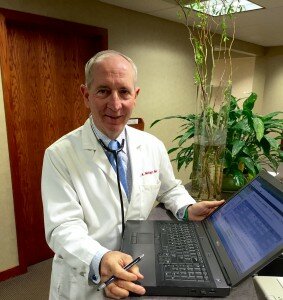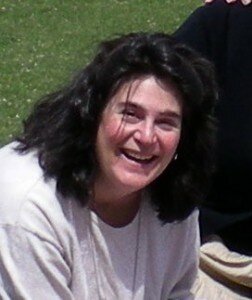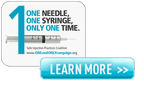Mentoring the next generation of physicians in patient safety

Dr Tom McKnight was recently awarded the University of Nebraska Medical Center’s Koefoot Award for outstanding teaching and mentoring of medical students during the family medicine rural preceptorship. Following are some excerpts from Dr McKnight’s acceptance speech.
Thank you, Koefoot family and the department of family medicine. I am humbled and honored by this award. I know that there are many deserving family physicians in our state that mentor students in outstanding, compassionate care on a daily basis. I read a quote by Gretchen about her father. She said, “Medicine was his life and his love. He devoted all of his time and energy to his practice in Broken Bow.” I hope my own sons will likewise admire the way I have conducted my practice.
I chose to go into family medicine because it provides the opportunity to be involved in peoples’ lives from birth to death. I’ve enjoyed the family medicine experience because of the broad range of challenges emotionally and intellectually whenever I step into an exam room. In my daily routine I often celebrate with new parents when they bring their baby to the doctor for the first time and then go to the next exam room to break the news to a married couple that the husband has terminal lung cancer and has only a few months to live. I have to say family medicine is as challenging and exciting now as it was 35 years ago when I started my practice. Sharing these challenges and rewards with students has made my day to day work life so much richer.
When I was first asked to mentor students early in my career, I quickly agreed. I remembered fondly the time I had spent in Lynch, NE with Dr Becker on my family practice rotation, and I was anxious to provide that stimulating experience for others. At the time that I first accepted students, I was hardly older than the students. I was 28 when I started my private practice. I think back on that now, and am glad I was too naive to realize the big responsibility that I was undertaking. My parents were both teachers, and I think because they made teaching look easy, I thought it would be easy for me, too. I quickly came to a deep appreciation for how challenging teaching is, and gained a deep appreciation for how my parents had shaped so many lives in profoundly productive ways.
Being involved with medical students throughout my career has been extremely rewarding. It is a source of continued stimulation and motivation for keeping up with the advancements of medicine. Sharing the joy with a student of their first delivery or the satisfaction of suturing their first laceration gives me a warm feeling. Its interesting to show them private practice medicine and what it is like to be involved in a community. I love following their educational and career advancement and then have them as specialty consultants. Many of the more than one hundred students I have mentored over my career have become my lifelong friends.
One big challenge to family physicians of my generation was the implementation of electronic medical records. Medical students have played a key role in my education about digital records and have made the transition seamless. Not only have they helped me learn how to keep digital records, they taught me how to access valid information on the web and how to fulfill ongoing family practice continuing education on the internet. And – they also showed me the best apps for Nebraska football stats!
My family has shared the experience of precepting students with me. Evelyn has been a gracious host to the many students who have joined our supper table and who have lived with us throughout their rotation. When our sons were young, I could see how they started thinking about medicine as a career through watching students, which is a different way of seeing medicine than in watching Dad. I was privileged to mentor all three sons during their medical education. It was marvelous to see their compassion and care of patients during their family medicine rotations. It gave them an understanding of what my career is. I’m honored that they have chosen medicine for their own career paths and that they, in turn, mentor students. It’s rewarding and sometimes humorous to talk to them about their own patients. I got a phone call from Curtis the psychiatrist recently, asking me how to treat constipation!
My staff takes great interest in the education of the students. This has become even more important in the era of digital medical records because the first few days of a rotation is spent with staff as the student learns our office based system. Staff gets attached to the students and is sad to see them go when they leave, but are delighted to see their progress as compassionate physicians. Staff often spends more time with patients than I do, which teaches the students the value of teamwork in patient care.
The patient doctor relationship is special. I am privileged to care for 4 generations of families. I am so humbled that they have placed their trust in me, many for 3 decades.
Our patients are always very interested in students. They want them to learn well; they want them to do well. They want them to become exceptional Nebraska family physicians. I see how disappointed the patients are when they come to the office expecting to see their favorite student, only to learn that she has moved on. Patients still ask me about students, years after they have graduated. This is especially true when the student was involved in a family crisis or a family joy such as a birth or a triumph over a serious disease.
You wouldn’t think that something as serious as teaching young people how to be good doctors would provide opportunities for laughter, but the truth is, something funny happens nearly every day. Here are some examples:
We’ve had students (more than one) put a cast on the wrong arm. Or put a blue cast on a little bitty girl dressed in pink who is sobbing. The student thinks she is crying because her arm hurts, but in actuality, she is crying because she wanted a pink cast!
Fremont Health Center is not a big place, but we had a student who could not remember where to park, even after being shown numerous times. In the last week of the rotation, the security guards were threatening to tow.
One time, after a student had completed his first pap smear, the staff member moved the provider’s stool out of the way. The student wasn’t aware that the stool had been moved, and plopped down on the floor!
I asked a student to put a UNA boot on a patient’s foot. When I came into the exam room, there was a blue shoe bootie on the injured foot!
I’m generally a patient man, but sometimes the time it takes some new students to do their first suture repair in interminable. I try to encourage the student to speed things up a bit without worrying the patient by making the comment “The fibroblasts are restless.” Not always does the student crack the code, and I often get a puzzled look from both the student and the patient.
I appreciate the cultural diversity that students bring to our practice. Last fall I had the pleasure of introducing a Chinese student to Nebraska football. Seeing the pageantry of the Red Sea in Memorial Stadium through someone else’s eyes made the experience so much richer for me.
I’ve enjoyed opportunities to serve in ways other than office medicine. I’ve shared with students about our service trips to third world countries, membership on nonprofit boards, medical staff offices and our own patient safety foundation HONOReform. I hope that all of my students will find service opportunities in their careers that have been as fulfilling to them as mine have been to me.
Our own experience with medical error and the work of HONOReform has made me a better doctor because I understand both the doctor and the patient side of the relationship. I’ve learned how to accept responsibility and do the right thing, even when that is a very difficult thing to do. I try to pass these lessons on to the students. From the first day of a rotation, the student hears our story, and throughout our time together, I try to model transparency and ethical behavior in every patient encounter. I want them to become less defensive, more compassionate, and more grateful for this wonderful career as the years go by.
For all of these many gratifying experiences, I thank the students who have spent precious months of their four years of medical school with me. I thank the department of Family Practice for their confidence in me. I thank the Koefoot family for recognizing and supporting rural family physicians in Nebraska. Our work is not done, and I am eager to continue to mentor the next generation of family physicians.






